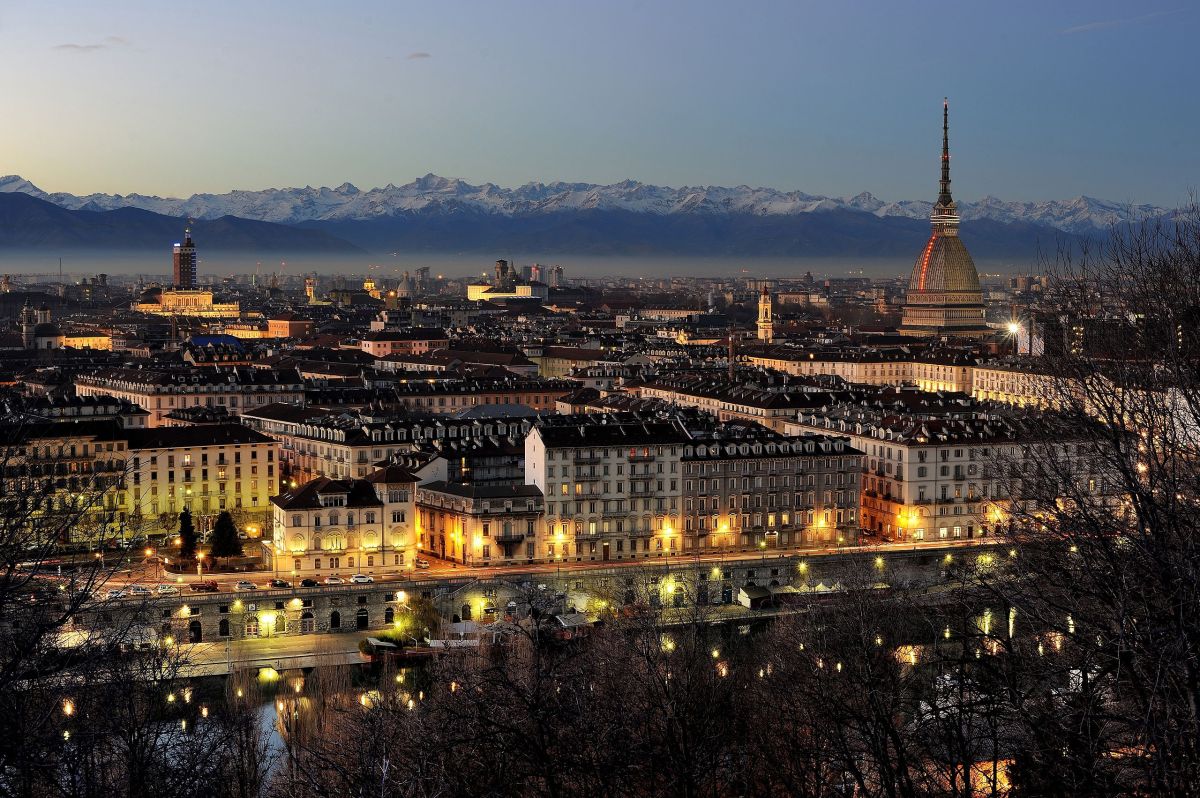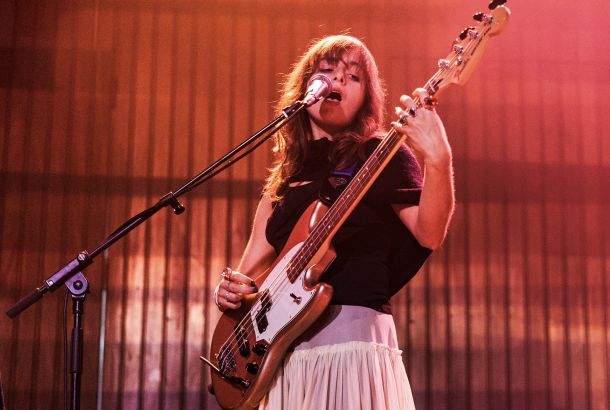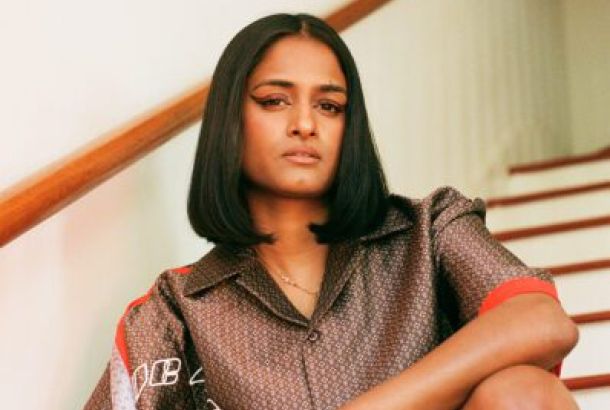Eurovision 2022: 10 songs you need to listen to

Being the most-watched live non-sporting event in the world with almost 200 million viewers around the globe, Eurovision needs no introduction. It’s a full-scale celebration of diversity in Europe, created decades ago to bring the continent together. Now, for the 66th edition of the world-famous song contest, the values of the event feel more important than ever. In these times, Eurovision is not only an important cultural and music event, but, maybe most importantly, a platform for solidarity.
Ahead of the Saturday grand final, we have prepared a ranked list of ten songs to watch out for in this year’s edition, for a multitude of reasons.
#1 🇺🇦 Ukraine: Kalush Orchestra – ‘Stefania’
The sole fact that the Ukrainian delegation is able to travel from the war-torn country to perform on the Eurovision stage is nothing short of a miracle and something that asks for great respect. Don’t get it wrong though, Ukraine is not coming to Eurovision to beg for sympathy votes. After all, Ukraine is one of the most successful countries in recent history of the contest, and the only country to maintain a perfect qualification record to the grand final since their debut in 2003.
‘Stefania’ brings folk music (with an unforgettable flute solo!) and modern Ukrainian rap together in one song, capturing Eurovision spirit at its best – showcasing a country’s culture while making it enjoyable, modern, and accessible to audiences all over the continent.
Initially written as a tribute to the frontman’s mother, the sentimental lyrics gained an entirely new meaning in the current political climate. “I’ll always find my way home, even if all roads are destroyed”, says one of the song’s lines, and the whole quickly started being interpreted as a love letter to the nation, with the titular Stefania symbolising Ukraine.
Understandably, Ukraine is the favourite to win the contest, and it’s destined to become the topic of conversations for critics of Eurovision – “It’s not about music, it’s all about politics” is often a common argument. It’s important to remember that it’s never possible to entirely separate the social and political issues from art, and art serves as reflection of anything happening in the world.
Regardless of this debate, however, ‘Stefania’ is not a song asking for cries over the fate of Ukraine. It is a piece of art that blends the traditional and the modern, an anthem that unites a nation, and a performance whose win would make a powerful statement.
#2 🇸🇪 Sweden: Cornelia Jakobs – ‘Hold Me Closer’
Known for polished pop entries with world-class production value, Sweden is usually one of Eurovision’s best. ‘Hold Me Closer’, however, stands out from all previous Swedish entries.
It’s a universal song about love and heartbreak, one that everyone can easily identify with, but there’s no cheesiness to be found. The lyrics sang with pain and sorrow hearable in Cornelia’s characteristically gritty vocals might be simple and straightforward. Yet, sometimes there’s no need for metaphors, and the painful “Oh, it kills me / I found the right one at the wrong time” is a heartbreaking line in itself.
The staging prepared by the Swedish team is effective as usual, understanding and fitting the purpose of the performance. The combination of authenticity and a memorable rhythm makes for a perfect song, and one that is set to bring tears to millions of eyes.
#3 🇷🇸 Serbia: Konstrakta – ‘In corpore sano’
Serbian entry, with a title translating to ‘In a Healthy Body’, is one of the songs that will undeniably stand out from the final 25 entries. It’s a layered avant-garde piece of art that works as a satire on the Serbian healthcare system, the Western beauty standards, and the disregard of mental health.
Although the song being sung in Serbian might make it less accessible to viewers around Europe in terms of understanding the details of the lyrics, the message seems to be carried through the performance. The repetition of the phrase “Biti zdrava” – “(She has to) be healthy” encapsulates a strong viral potential, and the song will not go unnoticed. In her native Serbia, Konstrakta has made headlines thanks to the strong social and political message and is becoming a symbol of the changing country.
#4 🇮🇹 Italy: Mahmood & Blanco – ‘Brividi’
Having achieved the second place in Eurovision 2019 with ‘Soldi’, a deeply personal hip-hop piece about his father, Mahmood is no stranger to the Eurovision stage. Three years later, he comes back for a duet with a 19-year old rapper Blanco.
Their song, however, is something entirely different from what they’re both famous for in their home country. ‘Brividi’ (‘Shivers’) is a heartfelt ballad full of raw emotions and vulnerability: “Naked and shivering / Sometimes I don’t know how to express myself / And I would love you, but I always get it wrong”.
The emotional song highlights the vocal capabilities of both singers, pairing two distinct voices together. Mahmood and Blanco are amazing performers and the chemistry between them is evident in every word sung and every look shared between them. Truly a magical pearl of Italian music.
#5 🇬🇷 Greece: Amanda Tenfjord – ‘Die Together’
A triumph of simplicity, Greece’s ‘Die Together’ combines emotional lyrics, a melodic tune, and a well-directed, polished performance to create a soul-crushing ballad.
It asks for comparisons with the Swedish entry, featuring lyrics like “But if we die together now / We will always have each other / I won’t lose you for another.” ‘Die Together’ has more meanings to it, however, reflecting not only on love and commitment, but also on coronavirus-induced solitude and the climate change. Deeply emotional and with a pinch of youthful edginess, it does a great job at pulling at heartstrings thanks to Amanda’s charismatic presence and hypnotising voice.
#6 🇳🇱 Netherlands: S10 – ‘De Diepte’
Bringing the Dutch language back to Eurovision for the first time in over a decade, The Netherlands’ entry is another example of what Eurovision should be about. It is a showcase of modern Dutch pop, a genre hardly heard outside of the country’s borders, but ‘De Diepte’ proves that it deserves more recognition.
The 21-year-old artist is open about the time she spent in a psychiatric hospital when growing up, which is a theme of many of her previous works. ‘De Diepte’, translating to ‘The Deep’, or ‘The Abyss’, draws on depression and feeling lost and confused. She sings about relationships to describe the relationship she has with herself, with her lyrics being replete with sadness: “Are you ever scared / It will always stay the same / Because it’s raining every day / And I can’t see anything.” Even without understanding the lyrics it’s not difficult to hear the emotions in the artist’s voice, and with its heartbreaking tone the song is a unique package of modern music.
#7 🇳🇴 Norway: Subwoolfer – ‘Give That Wolf a Banana’
Enough seriousness for now; we all know Eurovision is often recognised as a festival of camp – or kitsch, if you prefer. Every year you can find a fun, light-hearted song that begs you to become your guilty pleasure.
This year such song comes from Norway, and features two singers in yellow wolf masks, a simple and memorable dance routine, and lyrics about, well, giving a wolf a banana. Everything about it screams Eurovision, and this is a great example of a well-made, memorable fun song that will always have its place among both Eurovision fans and regular watchers.
#8 🇵🇹 Portugal: Maro – ‘Saudade, saudade’
Saudade is a Portuguese word that captures a profound emotional state of melancholic nostalgia, of longing for an object that might never be had again. This year, Portugal’s entry captures the essence of this word with the beautiful, poetic, and meditative song.
Half in English, half in Portuguese, ‘Saudade saudade’ is a universal song fuelled by melancholy, by inability to let go. It’s delicate yet it’s able to make every word resonate strongly: “I know it’s no one’s fault, but / Somehow I can’t move on, oh you’re gone.” It is inherently universal while standing as a beautiful poem to Portuguese culture, letting us all into the artist’s world.
#9 🇵🇱 Poland: Ochman – ‘River’
A power-ballad with arguably the most talented male vocalist in this year’s contest, ‘River’ takes its audience on a dark and intimate journey. Flowing seamlessly thanks to Ochman’s melodic vocals, emotional and modern instrumental, and impressive falsettos (absent in the studio version). It’s sung with passion, and the visual special effects prepared by the Polish delegation will make it a captivating performance to follow.
With all this masterful production value, however, some intimacy is lost, and ‘River’ might feel disingenuous, as if crafted with achieving Eurovision glory in mind. Regardless, there are so many exceptional aspects to the performance that it can’t go unnoticed.
#10 🇬🇧 United Kingdom: Sam Ryder – ‘Space Man’
After ending up in last place in two consecutive contests, with ‘Space Man’ the UK might be looking at its best result in years. Although it’s considered one of the main favourites to win by betting websites (currently at second place in odds behind Ukraine), I can’t see the UK placing this high – but maybe I’m wrong on this one.
What is an undeniable fact, however, is that the UK finally put some effort in choosing a Eurovision song, selecting a TikTok star Sam Ryder. ‘Space Man’ is packed with positivity, and Sam’s vocal performance puts a lot of heart into the song.
Whatever the result for Sam at the grand final might be, the UK will be on a good track to change British attitudes towards Eurovision. After all, although universally loved throughout continental Europe, Eurovision is often entirely disregarded on the British Isles.
Eurovision 2022 Grand Final takes place on Saturday May 14th at 8pm and will be transmitted on BBC One.







